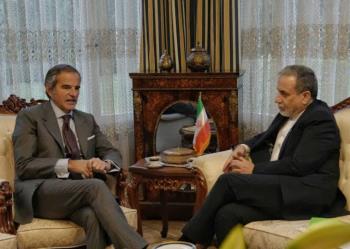Alwaght- The grass is always greener on the other side of the fence. This is also relatively true with countries that share a neighborhood swamped in political turmoil. When one state enjoys better economic and political support from the West, even if it were an occupying regime, other countries often resort to this “neighbor” to help them fix their own problems.
This analogy helps us understand the relationships between the Israeli regime and other states in the region; namely, Turkey, Egypt and Saudi Arabia.
Yet, it is ironic that these Muslim-majority countries might perceive the Zionist regime sitting on occupied Palestinian land as the go-to neighbor in times of trouble. Convulsed with a variety of internal and external problems, Ankara, Riyadh and Cairo have turned to the Israelis in bids to solve them
But how can an entity, whose entire existence is based on transgression (occupying Palestine) and continues to face the consequences for it 68 years on, be involved in making the region a better place for its people?
The truth is that the Israeli regime has too many issues of its own to be interested in solving others’ problems.
One key obstacle these countries have encountered when they initiated contact with the Israeli regime—which is perceived as an enemy of the Arab and Islamic nations—is public outrage over normalizing ties with the force that occupied Palestine and that has waged war against other Arab nations to expand its presence in the region.
Mitigating this reaction has come in the form of oversimplifying the truth; in other words, by trying to convince their people and other nations that making contact with the Israelis can help resolve the Palestinian quandary.
However, history has proven that peace with the Israeli regime is not a solution nor will it ever ensure the liberation of Palestine. In fact, Egypt under Presidency of Anwar Sadat was the first Arab country to recognize the Israeli regime under the Camp David Peace Accords. The idea of peace with the Israelis and the prospects of liberating Palestine through negotiations failed then and there.
On the other hand, Turkey’s political stances against Tel Aviv have previously brought it much respect from its people.
For example, President Recep Erdogan’s clash with then Israeli President Shimon Peres at a World Economic Forum debate in 2009 over the Israeli war on Gaza gained him the appreciation of the Turkish people.
Today, Erdogan’s and Netanyahu’s governments are letting go of the past. In June, the two sides announced they’d be normalizing ties after a six-year rupture. The rapprochement came as prospects of profitable gas deals were becoming nearer.
Not long after, Turkey was shaken by an attempted coup. This shows that just because Turkish-Israeli relations improved it doesn’t mean that all will be sound and well under Erdogan’s rule. Nonetheless, some are still trying to convince the world that such a development would enhance Turkey’s prospects.
A senior adviser to President Recep Tayyip Erdogan told Israeli Channel 2 television that the failed coup attempt by members of the Turkish military will serve to deepen Turkey’s newly restored ties with the Israeli regime.
Contrary to what they might believe, political developments have shown that when it comes to regional countries that maintain ties with the Israeli regime, the situations they are going through do not necessarily improve. As a matter of fact, it appears that there is a reverse relationship between stability and ties with the Israeli regime.
While Egypt and Jordan are the only two Arabs states that maintain full diplomatic relations and open borders with the Israeli regime, Saudi Arabia has been recently kick started a series of meetings with Israeli officials to initiate relations that were previously only clandestinely held. With Riyadh’s hostility toward Iran increasing, siding with the Israelis who regard Tehran as an existential threat, seems the best way for the Saudis to secure an ally, even if it is at the expense of the Palestinian cause. Eventually, so-called peace talks will again be used as a wild card to justify the establishment of these ties in the absence of viable solutions for the Palestinian issue.
Within the Israeli regime, issues such as political divisions, international scrutiny, economic problems, and anti-occupation operations remain central to Tel Aviv’s continuity. The Israelis have their hands full.
The grass is withering on the other side of the fence, albeit slowly. What these countries are failing to understand is that the Israeli regime’s days are numbered. Once it is destroyed, they will be left to weed out its remains from their own systems.



























